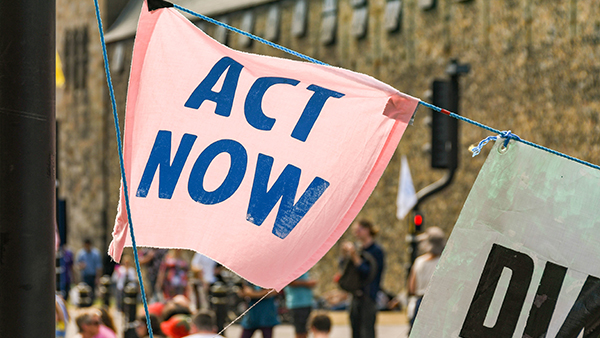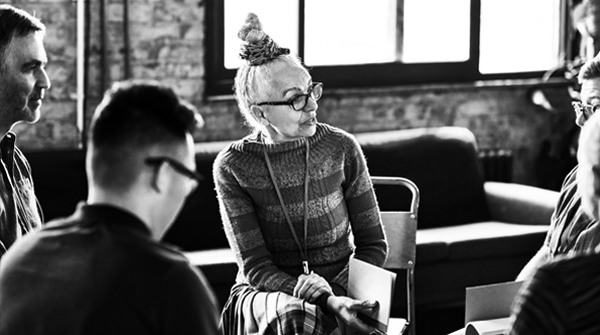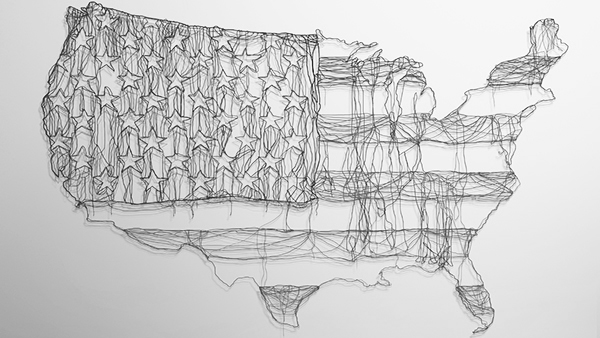On Monday evening the RSA hosts a timely event exploring the foundations for a political party fit for the second decade of the twenty first century. I will be speaking alongside Neal Lawson, whose Compass organisation has commissioned interesting papers on the subject of new party models and Catherine Mayer co-founder of the Women’s Equality Party. In my contribution I aim to bring together two sets of issues that are rarely part of the same debate; the reform of democratic institutions, particularly political parties, and the reform of government and policy making.
This is an ambitious way to address a complex subject so I am using this post to rehearse my argument. It would be useful to get some feedback that I might weave into my short speech. Ultimately, this subject calls for a much bigger piece of research, deliberation and advocacy, which I would love the RSA to be able to undertake.
Politics and political parties
Mission-oriented membership organisations tend to suffer from a number of structural flaws. Like other organisations, when ostensible public interest conflicts with perceived self-interest the latter often wins out. But membership organisations have specific challenges. Their leaders seek to make a case to a wide audience of policy makers, opinion formers and the general public, but their members tend to be unrepresentative socially, because certain types of people are more likely to be joiners, and attitudinally, as members will be true believers in the organisation’s mission. Both these characteristics are exacerbated when activists are compared with ordinary members.
The decision making processes of membership organisations are also problematic. The inherent tension between the priorities of organisational leaders and of activists means that internal democratic processes tend to be sham or problematic and often both.
These characteristics and the challenges flowing from them create an almost continuous debate about control and governance. In the RSA it took five hard and painful years to shift from a view of the Society as a club to be controlled by and for its members to agreeing we are a charity working in partnership with Fellows to pursue a shared social mission.
While the old ways of doing things blunted our impact, our failings primarily damaged us, not the wider world. If only the same could be said of political parties.
- Whatever our view of Brexit, we should never forget that the primary reason for the referendum was David Cameron’s need to pacify Euro-sceptics in his own Party and the electoral threat of UKIP.
- We have a new Prime Minister selected not by us but crowned unopposed as a result of machinations among the highest echelons of the Tory Party.
- The Labour Party has largely abandoned its duties as the Opposition as it consumes itself in civil war.
- Our Party system combined with our electoral system puts moderate Tory and Labour MPs on opposite sides even though they have more in common with each than ever they do with the diehards in their own Party. Arguably, the European fault line now tells us more about a politician and their world view than their party label.
- In large swathes of Britain one or more of the major parties is rarely if ever active while another major party takes voters for granted.
- The internal cultures of the two main Parties are unpleasant and archaic and all the parties are willing to do favours for those who bankroll them.
- Getting selected as an MP and making progress in Westminster has less to do with talent much less conscientiousness and much more to do with knowing how to play the game.
Modern democracy faces many profound challenges and needs major renewal. Not only is reform of political parties a vital and too often overlooked necessity, but parties and their ways of working are often the main block to wider reform.
‘The policy presumption’
‘The policy presumption’ is the habit of ministers and civil servants and, equally, all of us who urge them to act, of seeing the levers of central Government policy such as laws, regulations and earmarked spending as the most effective way of accomplishing social change.
The record of central policy is not good. There are the disasters, like the poll tax, the Child Support Agency, rail privatisation, which are vividly described by Ivor Crewe and Anthony King in their book The Blunders of our Governments. Then there is the underwhelming outcome of thirty five years of almost continuous central reform of public services. Finally, we are living with the failure to tackle major problems such as social inequality and immobility, the economic marginalisation of many areas outside the South East, the scale of unmet care needs, low productivity and an economy still deeply dependent on debt.
Central Government policy tends to be slow, blunt, cumbersome and path dependent. The factors that lead it to fail include complexity, global interdependence, the pace of change, diversity and the unwillingness of citizens to believe and do what they are told. All are growing in intensity. Traditional policy is even more likely to fail in the future.
New approaches are needed. Policy making needs to put citizen engagement and mobilisation at its heart. The model of change should be more creative, iterative, and adaptive. Indeed there is much experimentation in governments around the world, including the use of ‘nudge’ techniques (an area in which the UK has taken the lead), policy labs using service design techniques in central, state and city government, the growing use of deliberative democratic models and attempts to use on-line tools to gauge public opinions and behaviours more continuously and accurately.
But, these new ways still tend to be at the margins. Moreover, there are many aspects of our system of government which present high and currently unsurmountable barriers to doing things differently: Ministers still tend to see the creation of new departmental legislation as the way to create impact and legacy; Parliamentary accountability systems and media scrutiny, while often acute in their insights, can also discourage experimentation.
The changes needed to address these two sets of system failures are complex and will take time but change is more likely to happen and to be effective if those who broadly share this analysis could agree the main planks of reform.
Here are six sets of proposals as the basis for a charter for a new democracy:
We must return to the debate about electoral reform. The problems with first past the post are highlighted in the lack of alignment between party label and key values (particularly over Europe) and by the way a Party which won the support of just 37% of voters on the basis of a manifesto, most of which has now been jettisoned, has been able unilaterally to impose a new Prime Minister and Government. Scotland shows that it is possible to have a system that is fairer, provides more opportunities for small parties and can generate strong and stable government.
We should make much greater use of deliberative democratic models. While the outcomes of processes like citizens juries should not be binding they should be influential and also reassure the public that ‘people like them’ are being listened to. We should also continue to explore ways of using technology to engage public opinion in decision making.
The process of devolution to cities and city regions must continue. In England and around the world Mayors tend to be more popular than national politicians precisely because they are more free of party control (once elected) and use models of change based on convening stakeholders and engaging communities not simply pulling policy levers.
We need a new model for political parties, one that more clearly separates key functions. On the one hand, the grip of parties should be loosened. Elected politicians – especially those in power – need to be accountable primarily to the people they represent not to party activists. Ultimately, it is up to the public to decide whether representatives are up to the job and there should be wider use of primaries to select candidates. On the other hand, parties should be much more ambitious as social movements. Party activists should not be seeking to influence decision makers through back door deals or bogus internal democracy but by generating public support and engagement for new ideas.
We need to open up the process of policy making. On the one hand, drawing, for example, on the way the Bank of England monetary policy committee publishes votes and minutes of its meetings, we need give the public access to the debates that lie behind decisions and to understand that all policy options come with potential downsides as well as possible benefits. On the other hand, we need systems of accountability which not only allow for, but encourage, more experimental, adaptive forms of policy making and implementation.
The way Government works needs radical reform. There should be a small number of super-departments overseeing key aspects of national strategy. The Cabinet should be much smaller but also more genuinely strategic in its purview. Beyond the Cabinet most ministers should not have open-ended functional roles, which encourage departmentalism, but time limited change objectives. They would pursue these objectives working openly with teams make up of people from inside and outside government, blurring the boundary between policy making and implementation. It should be common for governments to ask talented politicians of other parties to lead these change teams. The reputation of MPs should be less about climbing the ‘greasy pole’ of ministerial advancement and more about their record in delivering change.
These proposals may seem slightly random, although I have in the past argued for every one of them. The key point is that the reform of democratic institutions and conventions must go hand in hand with the reform of government, policy making and accountability. As politicians who genuinely wanted to renew democracy, and reformers who genuinely wanted to modernise government, can mournfully attest, trying to change either without running into the constraints of the other is impossible.
Political realignment is coming – perhaps very soon. It could just be seen as an opportunistic shuffling of the deck chairs on a sinking ship or it could be a moment for us to start creating systems of democracy and decision making fit for the major, complex and dangerous challenges facing our nation and the world.
It’s hard to believe our political class could be brave and visionary, but with our system showing ever more decay and the challenges we face becoming ever more intractable surely now is the time for boldness?
Related articles
-
The public are ready to go further and faster on net zero
Anthony Painter
The public are ahead of policy-makers and, indeed, most of the business world. COP26 is an enormous opportunity to catch up. Global leaders should take it.
-
Can progressives ever stop the in-fighting?
Matthew Taylor
Biden's victory has caused the left and moderates to fracture again.
-
Can President Biden bring America together again?
Anthony Painter
There is a long road ahead for the new president.




Join the discussion
Comments
Please login to post a comment or reply
Don't have an account? Click here to register.
Thank you Matthew. A succinct 'tour d'horizon' of some of the key issues we will need to address. A few brief thoughts in response;
ELECTORAL REFORM - Will become less critical if key functions are devolved from the centre. The discussion paper just launched by the Constitution Reform Group proposes sending us squarely down the Swiss route - with a reduced Parliament administering only truly national functions such as defence, national security, foreign affairs, immigration, citizenship etc. The Swiss government only levies and administers some 35% of taxes - the balance being levied by the Cantons and Municipalities. Reducing Parliament by two-thirds will make the particular variety of voting used to select MPs much less important. CRG envisages the Commons being reduced to some 136 MPs anyway (from memory) so the role would be vastly different.
DELIBERATIVE DEMOCRACY - Yes, fine and useful for advisory purposes, or to decide the delivery of key decisions taken democratically. However, we must ensure that solutions following Sortitional / Demarchic principles aren't a substitute for real democracy - and more particularly aren't used to exclude or disenfranchise anyone from the democratic process. With a devolution of power, the way opens for a whole raft of democratic alternatives from representative democracy to local direct democracy - so long as we never lose sight of Art.21 of the 1948 UDHR which is rightly very specific in respect of universal, secret ballots.
DEVOLUTION - Yes, Localism is critical, to every corner of the realm. All functions must be devolved to the lowest level at which they can be efficiently executed - and in the process reinvigourating democracy, renewing empowerment and allowing all our citizens a role
NEW MODEL FOR PARTIES - Political parties must be freed from the quasi-constitutional role with which both the parties themselves and our permanent civil service have been attempting to endow them. This means they must be whiolly free of tax funding - and wholly dependent on members, subscriptions and donations within strict and defined limits. MPs must be freed from the 20th century anachronism of party loyalty and whipping overriding both their consciences and constituents. As Sir Partick (now Lord) Cormack said "It's Country, Constituency, Party. In that order."
POLICY MAKING - Greater public and professional involvement in a process that has both probity and transparency is long overdue - and was imaginatively dealt with by Baroness Kennedy in her 'Power' enquiry. Equally, exposing the role of professional lobbyists to the disinfectant of sunlight and scrutiny, making known the activities of interest and pressure groups and continuing to curtail the malign effect of 'fake' charities - and I mean those funded by government to produce recommendations in support of aspects of government policy under murky and ambiguous arrangements that often persuade the public that these reports and findings are 'independent' - will create confidence in the integrity of our institutions.
WESTMINSTER AND WHITEHALL - Yes. If we follow the suggestions of the Constitution Reform Group, the radical reform of the way that Whitehall / Westminster works is inevitable.
And I agree absolutely that now is the time for boldness and to seize the moment - for fortune is bald behind.
Very good piece. Thought provoking as ever.
On the point about deliberative democratic models I think this implies a different role and behaviour change for MPs. They need to be active brokers of the debates that seek to inform them. A more interactive model than one based on traditional consultation and feedback seeking.
I agree about a new model for parties and think you are in the right territory. However, I think it's about political parties learning FROM and working WITH social movements rather than BEING social movements. This may appear like splitting hairs, but I think there is a difference between organisations which have an explicit link with political representation and those wholly in civil society.
Process of policy making needs massive change as you've said before. That will often mean standing it on its head, starting with a proposition, problem and working co-productively with users, citizens to design the solution. Worth looking at Christie here and some of the work going on in Scotland.
Good piece, and helpful. My only feedback is that you may suffer a little from the curse of knowledge here in this respect: the distinction between politics and policy is not at all obvious to most people. I know it took me a long time to appreciate it (depsite studying politics at university and doing policy research) - it might be simply because the terms look and sound similar. The two terms are *very* often conflated- you can make more of that being the problem; the widespread conflation blurs our vision of what is possible. Before making the case for why new politics and new policy have to reciprocally shape each other, take plenty of time to establish the nature of the distinction.